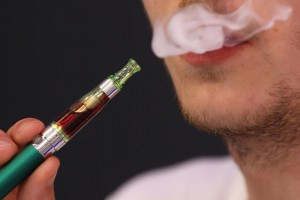 Each week seems to bring some new vaping regulations around the world, concerning its producing, sale and usage. While regulating the industry from a safety point of view is certainly not a bad thing, there are some countries that are implementing outright bans on vaping. However, many countries in Europe still consider e-cigarettes safe and do not introduce any regulations regarding this industry.
Each week seems to bring some new vaping regulations around the world, concerning its producing, sale and usage. While regulating the industry from a safety point of view is certainly not a bad thing, there are some countries that are implementing outright bans on vaping. However, many countries in Europe still consider e-cigarettes safe and do not introduce any regulations regarding this industry.
Here is a list of the most and least vape- friendly countries from around the continent for the year 2017.
According to the data, e-cigarettes and e-liquids are sold without regulations in the following countries:
Armenia, Bosnia and Herzegovina, Bulgaria, Gibraltar, Latvia, Lithuania, Netherlands, Poland and Russia.
Some Restrictions exist in:
Belgium: Nicotine-containing e-liquid can only be sold if the cartridge contains no more than 2ml of product and no more than 20 mg/ml of nicotine. No vaping products can be sold to those under 16.
Croatia: E-cigarettes are classed as tobacco products and cannot be used in public buildings, advertised or sold to minors.
Czech Republic: E-cigarettes are regulated identically to tobacco cigarettes so cannot be sold to minors and can only be purchased in outlets authorized to sell cigarettes. However, advertising is legal.
Estonia: While e-cigarettes were previously banned, this was overturned in 2013 and the TPD has led to legislation becoming more relaxed.
France and Germany: E-liquids are considered medical products and no e-liquid or e-cigarettes can be sold to those under 18.
Greece: Marketing of e-cigarettes is banned and no nicotine-containing products can be sold to those under 18.
Ireland: Vaping is currently not covered by the country’s smoking ban but marketing activities are restricted.
Italy: Nicotine-containing e-liquids and cartridges cannot be sold to those under 18 and fines can be anywhere from €200-2500.
Liechtenstein: Vaping products cannot be sold to those under 16.
Malta: Vaping products cannot be sold to those under 18. As of 2010 vaping products are considered tobacco products and regulated under the Tobacco (Smoking Control) Act.
Norway: Nicotine-containing e-liquids and cartridges can only be imported from other EEA member states, for private use only.
Romania: As of 2016 e-liquids have an excise duty.
Spain: Vaping products cannot be sold to those under 18. The Spanish Ministry of Health has stated the additional regulations concerning the use and sale of e-cigarettes will be introduced.
Sweden: Nicotine-containing e-liquids and cartridges cannot be sold to those under 18.
Switzerland:Nicotine-free e-liquids and cartridges are unregulated. Nicotine-containing e-liquids cannot be sold within the country but can be imported from overseas for personal use.
UK: Advertising and marketing is regulated by TPD and vaping products cannot be sold to those under 18.
Strict Restrictions take place in:
Austria: Nicotine-containing e-liquid and e-cigarettes are classed as medicinal and cannot be sold without a license
Denmark: Nicotine-containing e-liquid is classed as medicinal and cannot currently be sold. However, nicotine-free e-liquids can be purchased.
Finland: Nicotine-containing cartridges are prohibited but can be purchased from abroad for private use. Nicotine-free products can be purchased.
Hungary: Nicotine-containing e-liquids and cartridges are no longer banned but are heavily regulated.
Portugal: Vaping in public places is banned.
Turkey: Vaping products cannot be imported via mail or courier and vaping is banned indoors and on public transport with a full ban for under 18.
